Recycle Waste Bank at KMUTT Bangmod campus
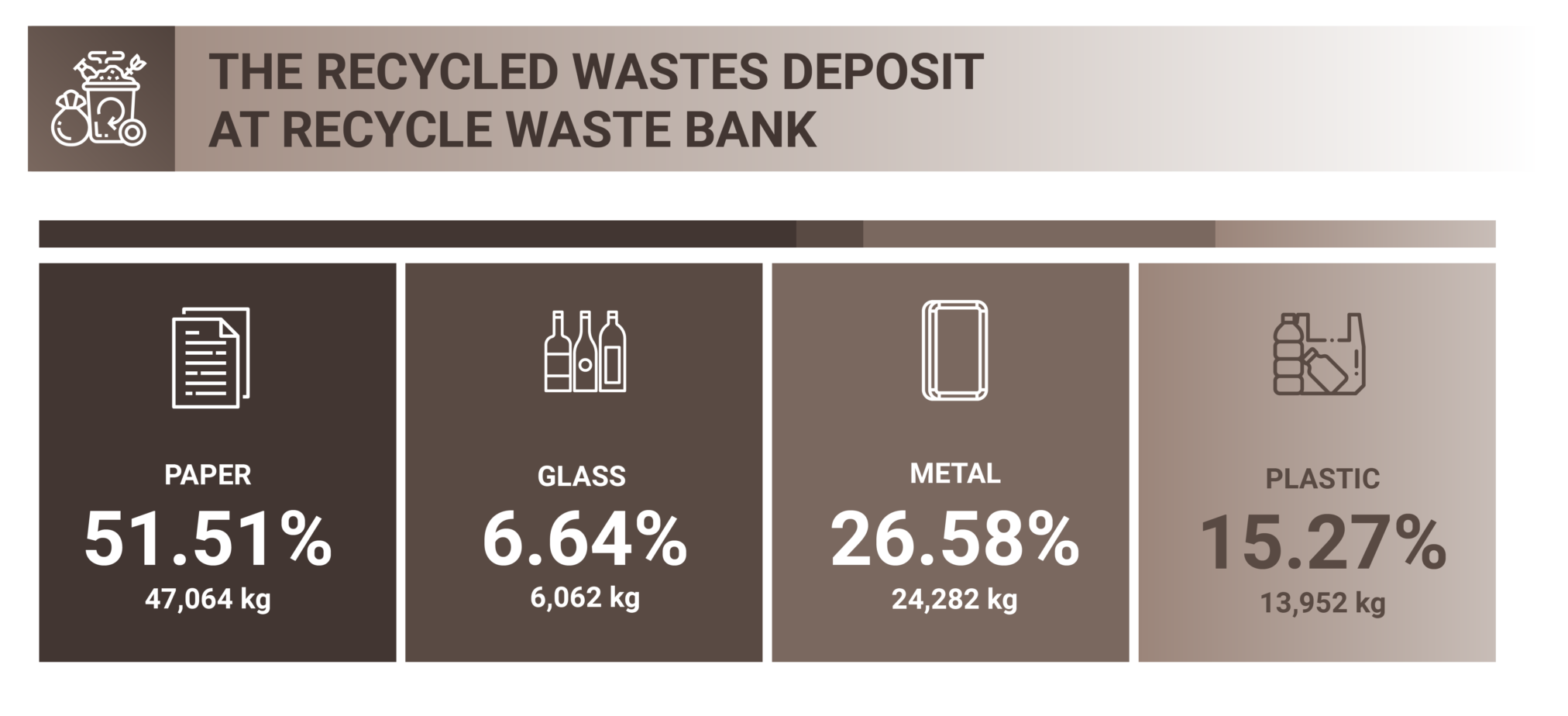
KMUTT Recycle Waste Bank: Leading Sustainable Change through Recycling
Established in 2007 through a collaboration between KMUTT students and the Energy, Environment, Safety, and Health (EESH) organization, the KMUTT Recycle Waste Bank sets a standard for Thai universities in end-to-end waste management and recycling. Aligning with KMUTT’s Green University policy, this initiative aims to reduce waste and ensure a more sustainable campus environment.
Through effective waste segregation, KMUTT saves over 10,000 baht each month in waste management costs, while significantly reducing the volume of waste sent to landfills. This achievement not only benefits the university but also supports the surrounding communities by fostering an eco-friendly environment.
The Recycle Waste Bank operates in five key steps:
- Waste Collection: Collecting recyclable materials from across campus.
- Waste Identification and Separation: Sorting materials into categories such as paper, glass, metal, and plastic.
- Waste Selling: Selling sorted materials to recycling partners.
- Accounting Record: Maintaining transparent records of income generated from waste sales.
- Result Evaluation and Development: Assessing performance and identifying opportunities for program improvement.
The income generated from these recycling efforts supports sustainable community projects within the campus, enabling KMUTT to invest in new environmental initiatives. This program not only drives KMUTT towards becoming a greener institution but also creates a model of sustainability for others to follow.
With 51.51% of the recycled waste being paper, 26.58% metal, 15.27% plastic, and 6.64% glass, the KMUTT Recycle Waste Bank underscores the importance of resource recovery and responsible waste management. Through this program, KMUTT continues to lead by example in promoting a sustainable and eco-conscious mindset within and beyond the campus.
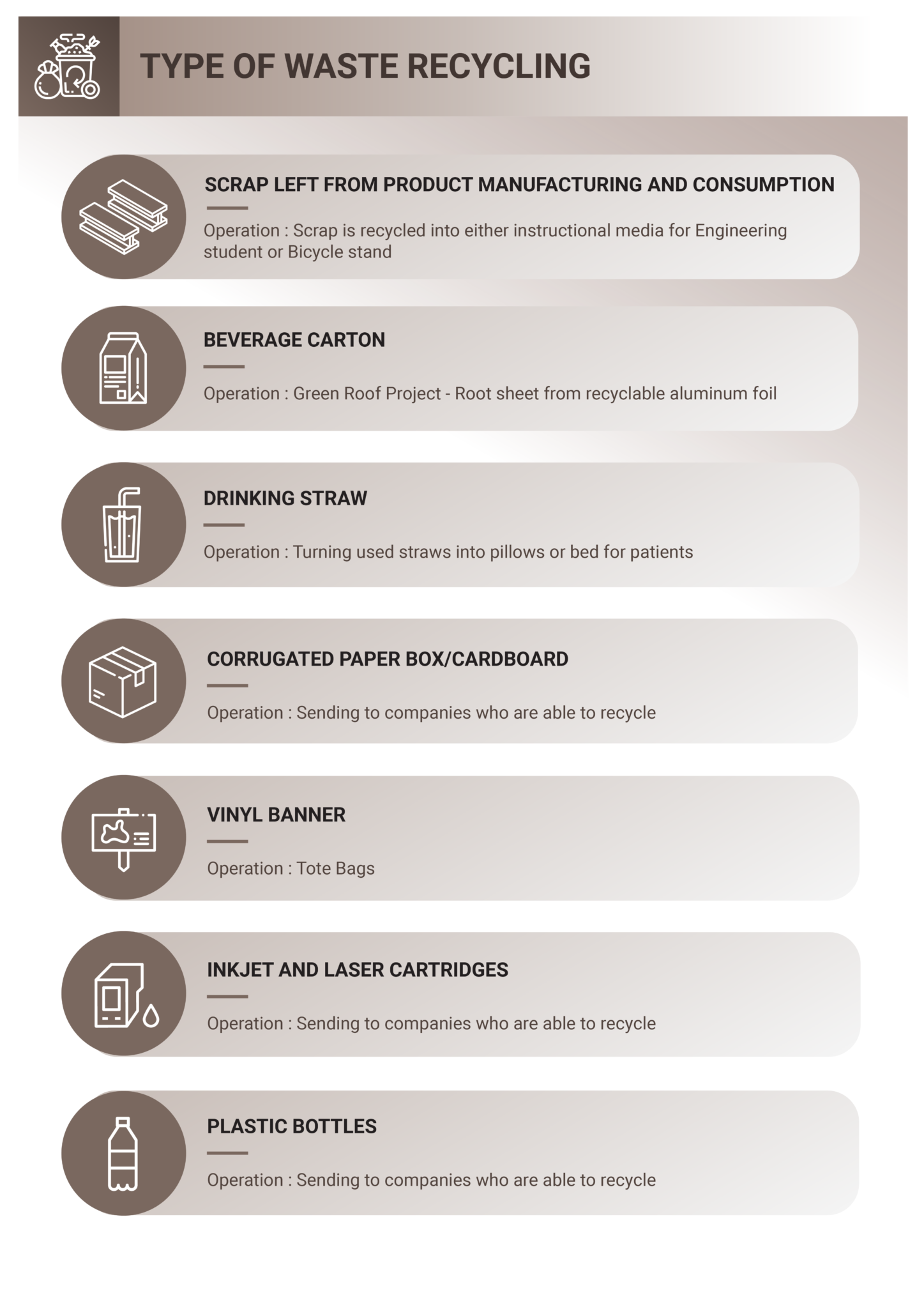
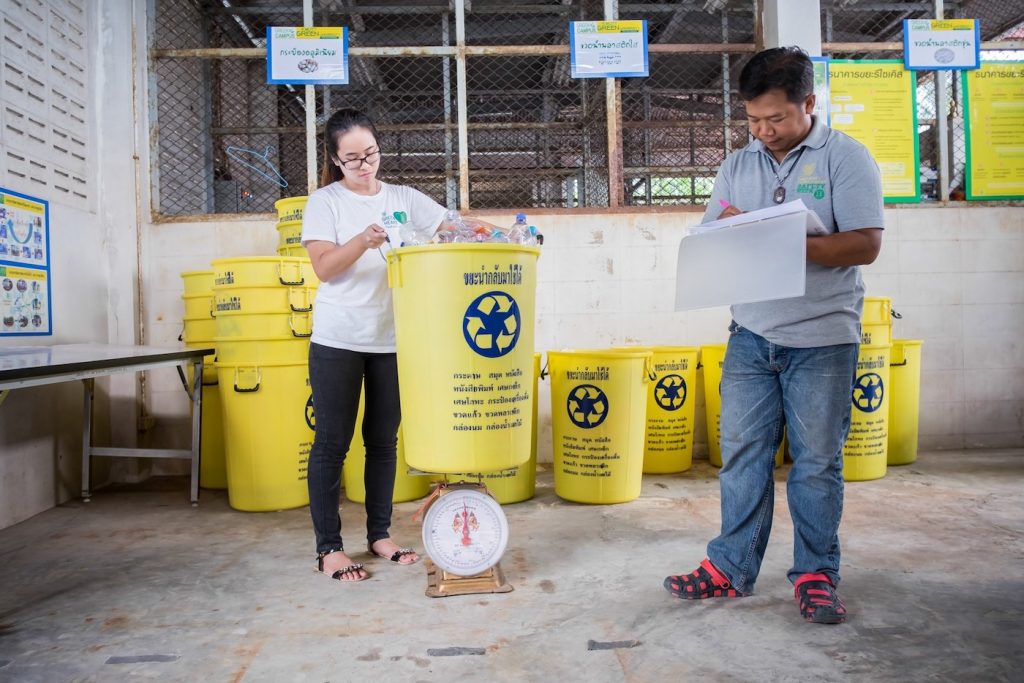
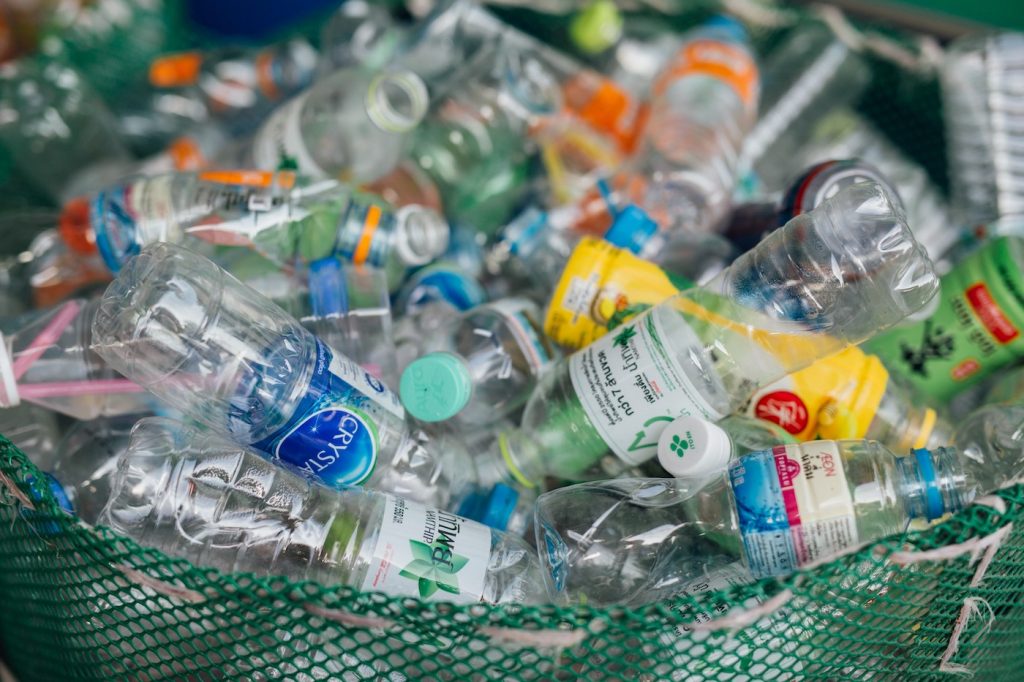
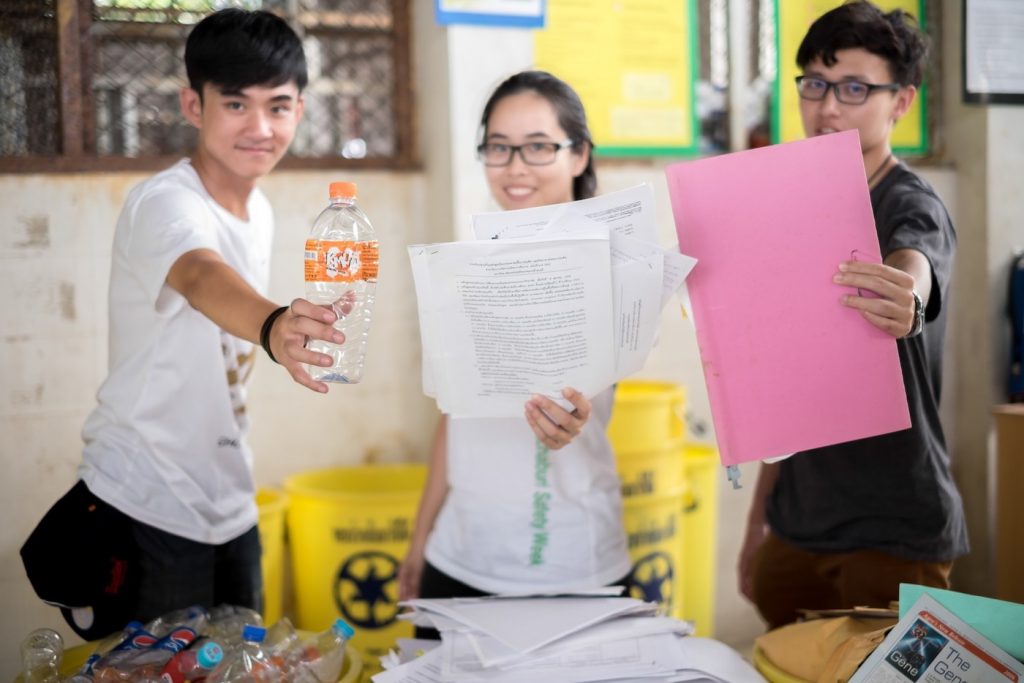
Repair Café @ KMUTT’s project
Repair Cafés are pop up events located at Bangmod campus where student and staff can get their broken electrical household items, computer and bicycle repaired for free. This event is set up once a month by the corporation between student, staff and technician volunteer such as Suanthon GoldCity Cycling Club, Green Cycling club, KMUTT cycling club , Department of Electrical Technology Education and Innovation Engineering Co.,Ltd. At repair Café @ KMUTT, all participant enable to collect and sharing knowledge about reuse and repair broken appliance which not only saving cost for a new appliance, but also contribute student and staff learning about recovers valuable materials and as a result, saves energy, reduces pollution and reduces greenhouse gas emissions. As a result, more than 500 bicycle stand are built from remaining metal pipes. 75 bicycles are donated and reused in Bike Repairing Center and 121 of bike have been repaired and fixed for Bike Sharing Campaign. Moreover, 145 of broken chairs and desks have been repaired instead of buying new one. Also, 120 broken chairs and desks have been recycling to be parts of student’s workshop by the cooperation between department of Building and Ground and EESH office.
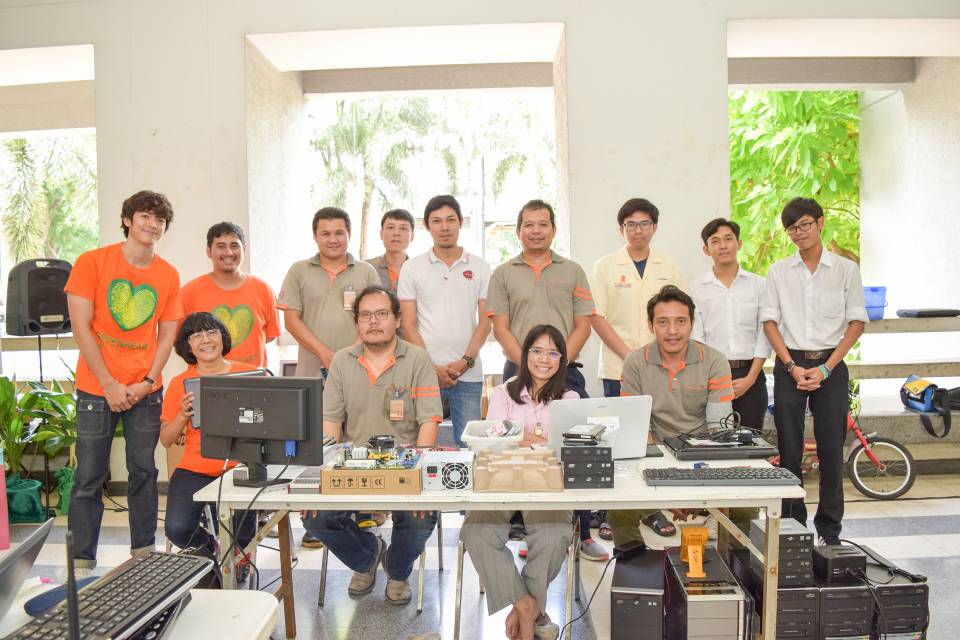


Engaging KMUTT Students in Sustainable Action: Inspiring the 3Rs Movement
KMUTT is committed to fostering a sustainability-minded community through a series of exciting, hands-on activities designed to inspire students to embrace the 3Rs—Reduce, Reuse, and Recycle. These initiatives aim not only to create awareness but also to encourage active participation, innovation, and responsibility among students. Here’s how KMUTT is making sustainable action a part of campus life:
- Campus Roadshows at Departments and Faculties
Taking the message of sustainability directly to students, KMUTT organizes roadshow events across various departments and faculties. These interactive sessions provide students with practical knowledge on waste reduction, recycling tips, and the importance of sustainable practices, ensuring the 3Rs become an essential part of their daily lives. - Green Heart Camp: Building Eco-Conscious Leaders
The Green Heart Camp immerses students in environmental education through workshops, team-building exercises, and outdoor activities that focus on environmental conservation. Participants learn the values and practices needed to become green leaders, developing skills that empower them to initiate change both on campus and in their communities. - Recycle to Cycle: Incentivizing Sustainability through Action
In the innovative “Recycle to Cycle” event, students and staff are encouraged to bring in plastic bottles, which they can trade for time on campus bicycles. This initiative not only promotes recycling but also encourages low-impact, sustainable transportation around campus, making it a win-win for the environment. - Invention Competition: Creative Upcycling
KMUTT hosts an invention activity and competition where students turn recycling waste—such as plastic and beverage cartons—into useful, innovative products. This competition fosters creativity and problem-solving, encouraging students to think outside the box and find new ways to repurpose waste, transforming it into functional and eco-friendly items. - Integrating Sustainability into Academic Learning
To embed waste management and recycling into the academic experience, KMUTT incorporates these topics into General Education courses and offers research opportunities focused on waste innovation. Projects like developing bio-plastic bags and creating roads from recycled plastic waste give students hands-on experience with sustainable technology, preparing them to lead in eco-friendly industries. - Community Engagement: Sharing Knowledge Beyond Campus
KMUTT extends its commitment to the 3Rs beyond the university by sharing waste management knowledge and skills with surrounding schools and communities. Through workshops and collaborative projects, KMUTT students and staff work with local schools to raise awareness and build sustainable waste practices, creating a ripple effect that reaches far beyond the campus.
Through these dynamic activities, KMUTT is cultivating a culture of sustainability, empowering students to make a real difference. By engaging in these initiatives, KMUTT students are not only learning valuable skills but also becoming ambassadors for the 3Rs, both within the university and in the broader community.
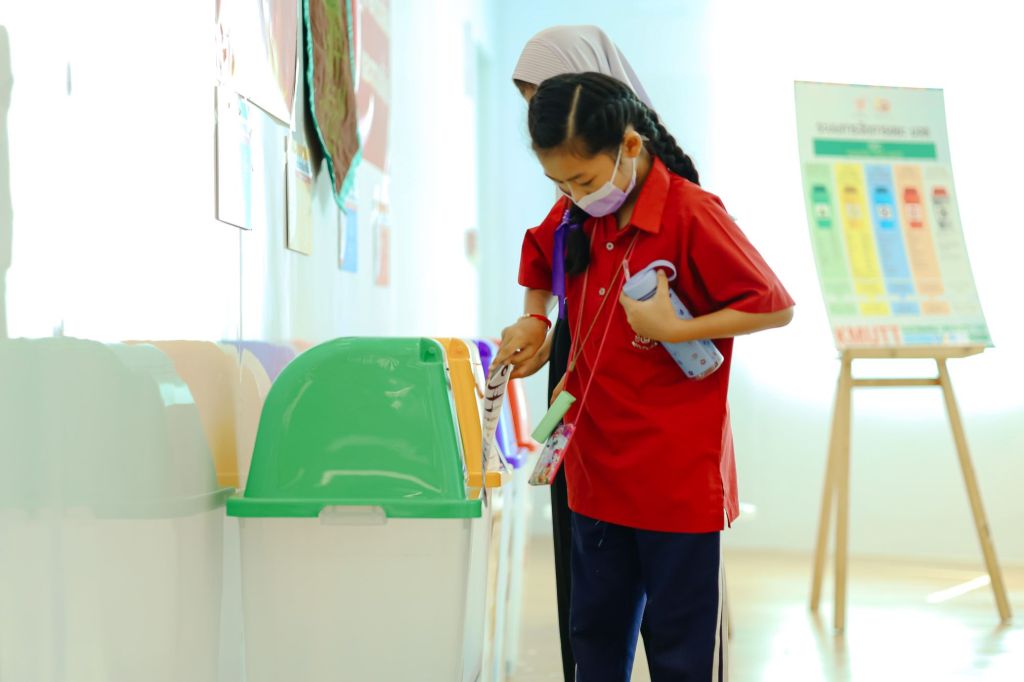
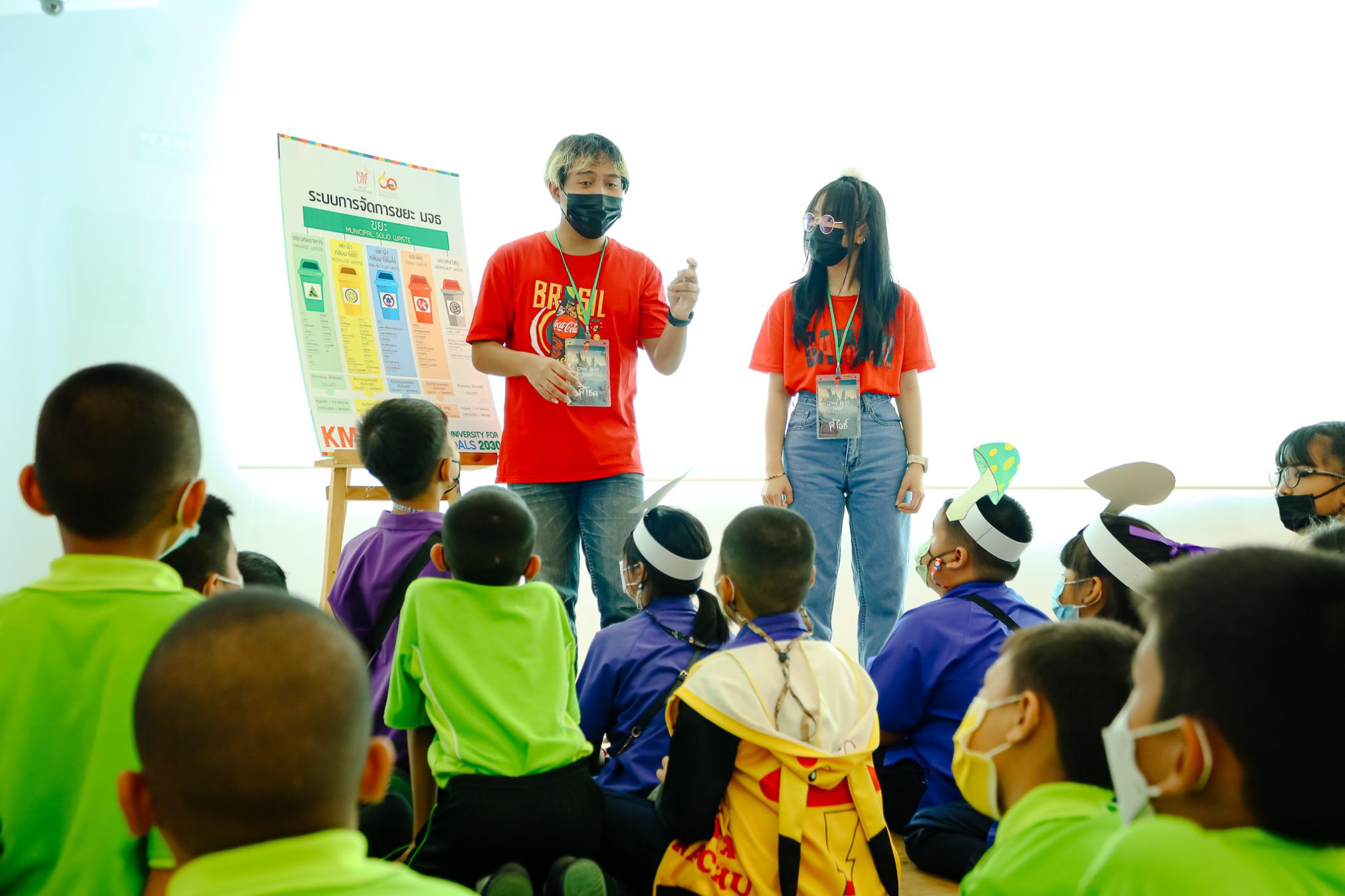
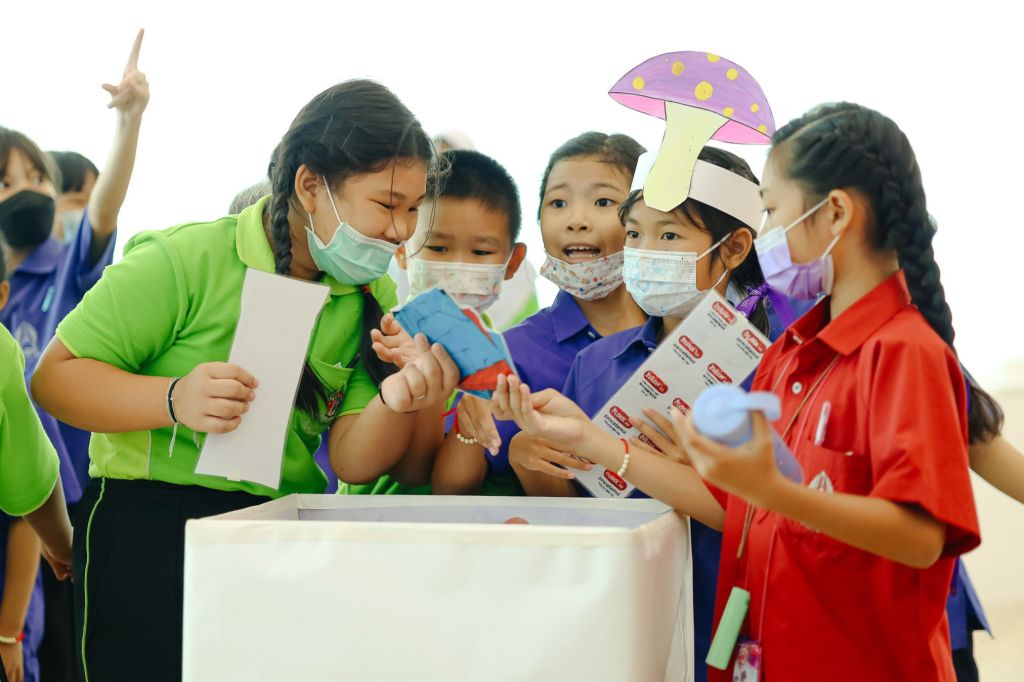
Second Hand Market
In each year, our university provide monthly second hand market event for exchange their gadgets, cloths, electronic appliances in good condition, books, accessories, bicycles, Furniture and housewares. By this event, it not only reduces more than 1500 Kg of MSW but also, the good cooperation between student and staffs more than 6,000 people who join activities.
” One trash is one treasure ” activity
In this activity, our students from Electrical Technology Education Department are trainer for giving knowledge on how to fix electrical appliances and engines to one who gets fewer opportunities and disadvantaged. After the training program, those people can repair unusable electrical appliances such as fans, kettles, irons, rice-cookers, motorbikes by themselves. This knowledge increases the value of electrical appliances or engines. The diary living quality of disadvantaged people will be better by use or sale those appliances and engines. In the same time, some disadvantaged people who able to repair electrical appliances and to fix engines will get new career and earn more money from this knowledge. As a result, 87 families in disadvantaged area get more skill to repair appliances and engines and get new career. In addition, more than 1,650 Kg of the electrical trash are in repairing process. Furthermore, those people can make their benefit and getting profit from buying-selling activities.

